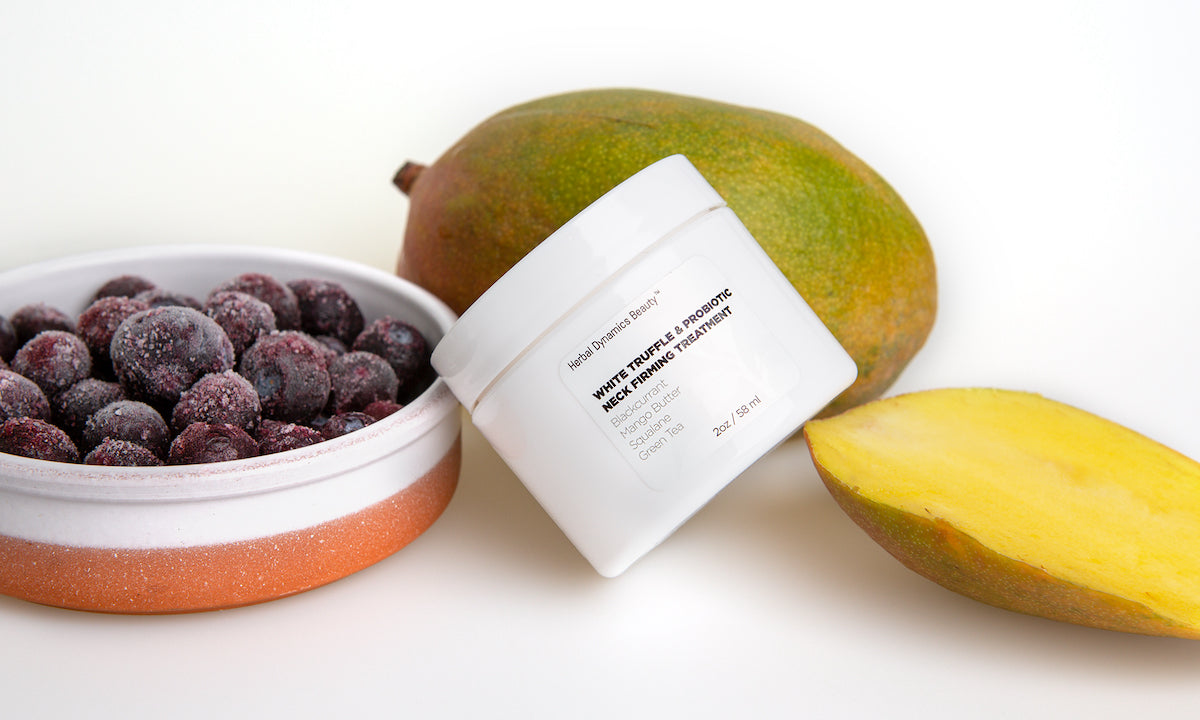Your Cart is Empty
FREE SHIPPING on US orders over $45. Save 25% With Code TAKE25 at checkout.
FREE SHIPPING on US orders over $45. Save 25% With Code TAKE25 at checkout.

From yogurt and tempeh to kombucha and kimchi, probiotic rich foods are well known for their gut health superpowers. But it turns out probiotics are just as good for your skin.
Like your gut, your skin has an ecosystem consisting of trillions of microscopic organisms. This microbiome consists mainly of bacteria living throughout the layers of your skin. The more strains that coexist in your skin’s microbiome, the healthier it will be. But an imbalance of bacteria in the microbiome can also lead to skin concerns like dry skin, wrinkles, breakouts and eczema.
Here’s the bad news- LOTS of things can throw your skin’s microbiome out of whack. Ready for the good news? Probiotics can help. This is your guide to probiotics in skincare- including everything you need to know about using probiotics for better skin!
You have trillions of bacteria in your gut and they control the condition of your skin. This correlation is known as the gut-skin axis. It’s a widely researched relationship between gut health and skin health.
When digestive balance is off, the gut becomes overrun with bad bacteria. This leads to inflammation in the gut. Inflammation in the gut releases pro-inflammatory cytokines throughout the body. The skin reacts to these cytokines in the form of acne, eczema, rosacea, or dry, sensitive skin. It can even trigger the breakdown of collagen, leading to premature aging.
The skin microbiome is the ecosystem of billions of bacteria, fungi, and viruses that comprise the skin microbiota. Which is a fancier way of saying collection of microorganisms.
The human skin has 1 billion microbes (bacteria) per square centimeter. This natural bacteria maintains the skin’s immunity and prevents things like eczema and psoriasis. When this balance of bacteria is disturbed, the skin becomes vulnerable to an overgrowth of bad bacteria, increased inflammation, and an altered pH.
Essentially, the more strains of bacteria that coexist in the microbiome, the healthier your skin is. Your skin's microbiome is as unique as your fingerprint. It’s in constant communication with its environment and your skin. It’s responsible for protecting your skin from pathogens and controlling skin immunity. It’s also responsible for nutrient absorption and supporting your skin barrier. The skin microbiome is essentially the control center of the skin.
Whether it’s environmental factors like pollution, sun exposure or stress; or natural factors like hormones and aging, the balance of your skin’s microbiome can easily be thrown out of whack. These are the most common culprits:
Probiotics are live bacteria naturally found in the body. Probiotics are good bacteria. Good bacteria helps eliminate extra bad bacteria. So probiotics are a way to add good bacteria to your body. Probiotics can help eliminate toxins and reduce inflammation. This makes them powerhouse ingredients for treating things like acne, eczema and rosacea.
Along with probiotics, prebiotics and postbiotics can help improve your skin’s microbiome. Prebiotics are nondigestible compounds that feed and support good bacteria and keep bad bacteria in check. Prebiotics are typically known as complex carbohydrates in foods. Prebiotics help balance skin pH or support the skin’s barrier function.
Postbiotics are fermentation byproducts produced by good bacteria. One example is peptides. These short-chain amino acids occur naturally in the skin, boosting its immunity response.
Another example is short-chain fatty acids. These are especially important for the skin, because the body can’t make them. If the bacteria on your skin aren’t making enough fatty acids or peptides, a topical product with fatty acids can give it a boost.
|
Probiotics |
Supplements or foods that contain viable microorganisms that alter the microflora of the host. |
|
Prebiotics |
Supplements or foods that contain a non-digestible ingredient that selectively stimulates the growth and/or activity of indigenous bacteria. |
|
Postbiotics |
Non-viable bacterial products or byproducts from probiotic microorganisms that have biologic activity in the host. |
You can take a probiotic supplement, or you can eat foods naturally rich in probiotics. Eating probiotic rich foods has been shown to decrease inflammation, benefitting the skin. Before adding a supplement, try adding one of the following foods to your diet.
Your body is home to trillions of microorganisms. And a host of these diverse bacteria ecosystems reside on your skin. Research shows that the good bacteria in this ecosystem promotes skin health. They reinforce your skin barrier against bad bacteria, balance your skin's pH levels and even protect against skin cancer. But lots of things can strip your skin of this healthy, or good bacteria. This makes your skin stressed and dry, causing issues like breakouts, eczema, rosacea flares and psoriasis. Probiotics can help.
From keeping breakouts at bay to strengthening the skin’s barrier, probiotics help to prevent multiple skin issues. Probiotics discourage the growth of bad bacteria that causes redness, irritation and breakouts. They have an anti-inflammatory effect, soothing redness, skin irritation and conditions like acne, rosacea and psoriasis. Probiotics can help boost your skin’s microbiome for a healthier, glowing complexion and your healthiest skin yet!